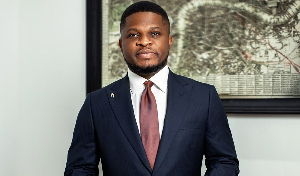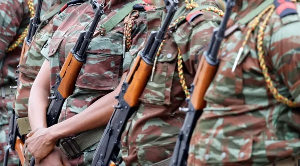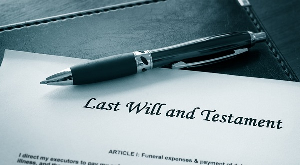As the political temperature heats up to the upcoming general elections, many politicians will be tempted to make grand promises in their bid to win the hearts of voters.
We will soon hear “free this, free that!.” But what is the price of the free?
If you follow any international TV or radio channel, a week won’t pass without a news item about Venezuela. The country that used to be the richest country in Latin America and became a global model for its meteoric economic miracles is now in tatters.
It is estimated that close to five million people have reportedly left Venezuela since 2014. The scale of the country’s economic decline can be comparable to Zimbabwe’s in the late 1990s. The country’s GDP has fallen more than 35 per cent, a sharper drop than the one seen during the Great Depression in the US.
The country is spiraling into hyperinflation. In 2018, the country’s inflation exceeded 1,000,000 per cent. Since early 2018, the government of Venezuela has essentially stopped producing official inflation estimates. Yes, that’s how dire the situation is. This state of affairs has led to shortages of everything including food, medicine, and other essential commodities. Things have gone from bad to worse!
These conditions have sparked a series of unending protests since 2014. The coalition of opposition political parties backed by the US wants President Nicolás Maduro out. Their leader, Juan Guaido, has also declared himself President! But how did the country with the world’s largest oil reserves get here?
Venezuela before the crisis
Venezuela has been blessed with oil far more than any nation on earth. But the wealth from the oil failed to trickle down to the masses. Unsatisfied by this state of affairs, Lieutenant Colonel Hugo Chavez attempted a coup in 1992. He was unsuccessful and thus was thrown into jail for two years.
When he came out of jail, he transformed himself into the man of the masses and stood against the political establishment. He contested for the presidency and won to become the President of Venezuela in 1998.
Having assumed the reign of power, Chavez decided that the bulk of the profit from the country’s oil should go to the masses. This was opposed by the elite establishment who made frantic efforts to get him out of office through a coup.
This forced Hugo Chavez to travel to the Socialist Republic of Cuba in 2003. On his return, Chavez decided to make Venezuela a socilaist state. He started by nationalising or giving state control to many businesses including electricity, telecommunication and the oil sector.
Luckily for him, in 2004, the global oil prices began to surge. Oil prices increased from $27 in 2003 to $91 in 2013.
Hugo Chavez embarked on social programmes with proceeds from the oil. His social programmes included subsidising the cost of food, investing in the country’s education, building affordable housing for the poor among many other programmes. In fact, within a record time, Hugo Chavez had reduced poverty by more than half.
At one point, Venezuela even provided free heating oil for impoverished Americans. Yes Americans!
Then out of nowhere, oil prices started to go down because countries such as the US and Canada began to increase their oil production.
Since Venezuela needed more money to sustain its numerous social programmes, the easiest option was to print more money to meet the short to medium term demands with the hope that the tide will turn.
President Hugo Chavez died of cancer in 2013 and was succeeded by his right hand man, Nicolás Maduro, who narrowly won and was sworn in as President. But oil prices continued to go down and fell as low as $41 in 2015. Foreign demand for Venezuela’s currency, bolívar, to buy Venezuelan oil crashed.
Maduro was forced to print more money and cancel some of the social programmes initiated by Hugo Chavez, his predecessor.
The printing of money led to high inflation and high depreciation. People then began to save their money in foreign currency like the US dollar to hedge against the fast depreciation.
As the country’s currency’s value fell, the cost of imported goods rose. The Venezuelan economy went into crisis. International investors began looking elsewhere, driving the value of the bolívar even lower.
The government responded by issuing currency controls. It set a fixed exchange rate, to stop the official value of the bolívar dropping against the US dollar, and made it difficult to actually get permission to exchange bolívares into US dollars. The idea was to stabilise the currency by effectively shutting down all currency transactions.
This led to mass protests. These protests forced a coalition of opposition political parties called the Democratic Unity Roundtable or MUD to come together and form a coalition. The opposition coalition contested and won two-thirds of the National Assembly, putting the President’s rule at risk.
In response, Maduro forced out several Supreme Court Justices and filled in with fresh judges loyal to him. In March 2016, the court ruled to strip the opposition-led National Assembly of its powers which escalated the protest on the streets of Caracas. This forced the Supreme Court to reverse its decision but the damage had already been inflicted and the protest continued.
The US then issued sanctions on Venezuela. US sanctions mean the country could not re-finance its debt leading to high and high inflation.
Amidst these protests, President Nicolás Maduro launched his re-election bid. The opposition coalition boycotted the elections but Maduro won amidst accusations of irregularities and voter intimidation.
Backed by the US, the opposition leader, Juan Guaido, declared himself interim President in January this year, after invoking the Venezuelan constitution.
This has set up a power struggle that is yet to be resolved.
Lessons for Ghana
Ghana is not immune to the crisis in Venezuela if we don’t watch our expenditure and the desire by the political class to promise free things to woo voters. The hard truth is that nothing is free. If a politician promises you something free, ask yourself, who is paying for it?
If our politicians will continue to make hefty electoral promises with the view that we have oil revenue that will pay for such promises, what become of such promises when oil prices take a nosedive?
The global slam down in oil prices was one of the key reasons why Ghana had to run to the International Monetary Fund (IMF) for help. This is because Ghana’s economic growth has been hedged on oil since 2010 when the country became a full-blown commercial oil producer. Ghana was not the only country that suffered when oil prices dropped. Oil dependent countries including giants like Saudi Arabia, Nigeria and others had to take some austerity measures to survive. This is because they all had failed to diversify their economies and given the volatility of oil prices, their economies suffered some shocks.
Ghana’s situation was pretty precarious because the drop in oil prices also coincided with the energy sector crisis popularly known as dumsor. This drop in foreign exchange through the sale of oil forced up inflation and led to high depreciation of the cedi leading to the cedi recording one of its highest depreciation in recent history.
As the country is gearing up for the 2020 elections, our politicians should not be carried away by the desire to win power to the extent of forgetting about how and where they will get money to finance their campaign pledges. We should realise that oil is a finite resource and we do not also control its prices. As a country, have we thought about how we are going to sustain the social programmes that are funded by our oil resources when we deplete our oil reserves?
So dear Mr. Politician, what is the price of your free promises?
Writer: Abdul-Karim Mohammed Awaf
Social commentator
Abdulkarimmohammedawaf@gmail.com
Opinions of Tuesday, 4 February 2020
Columnist: Abdul-Karim Mohammed Awaf















